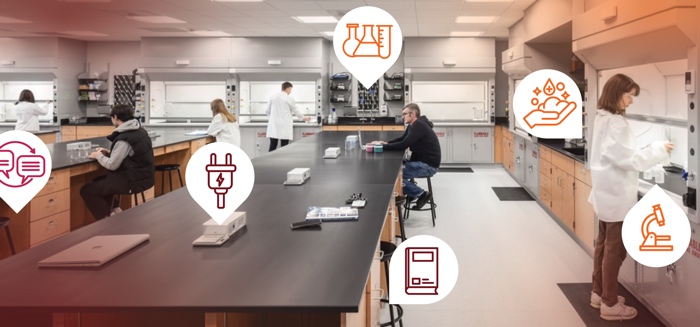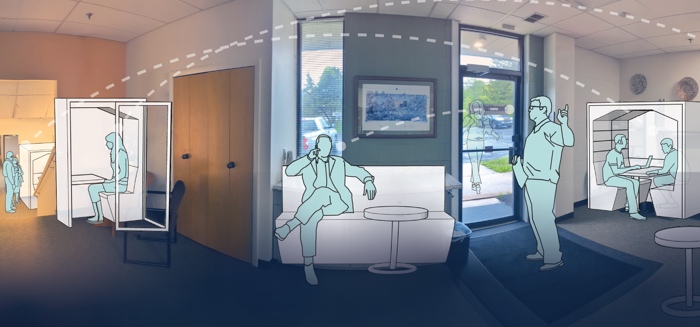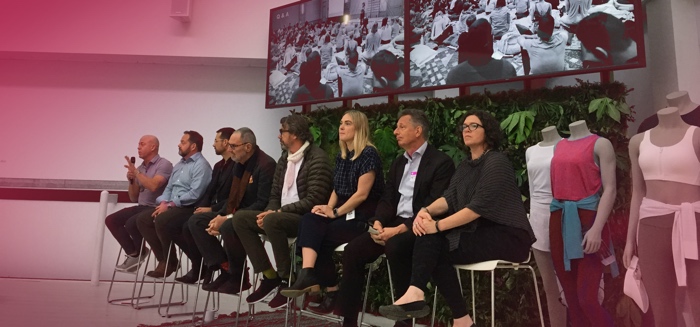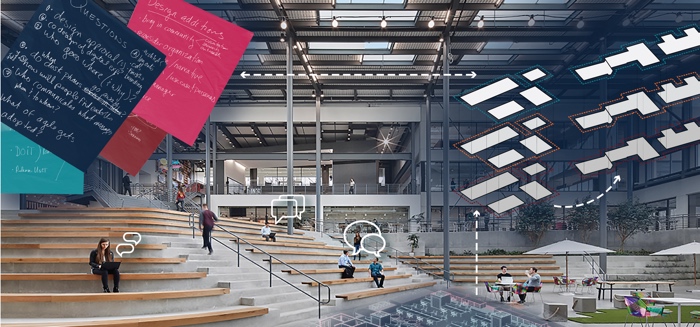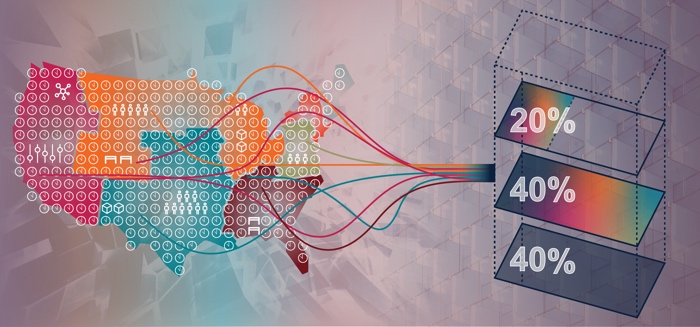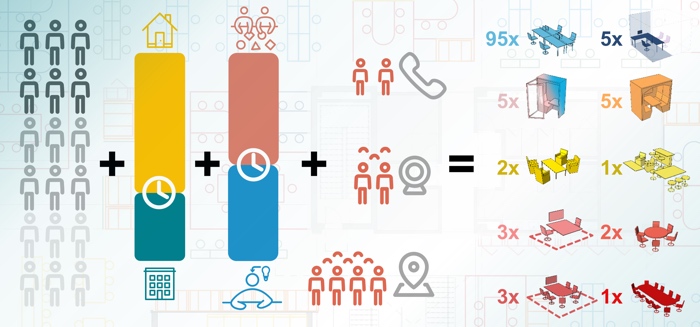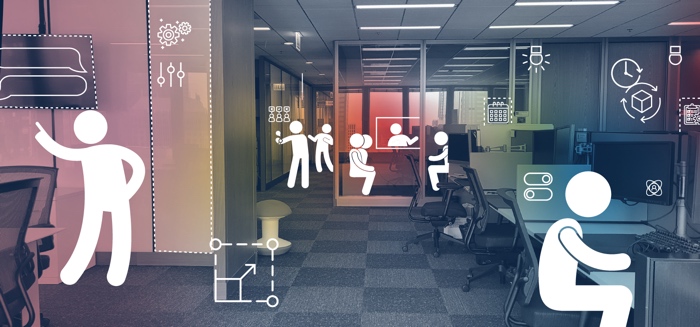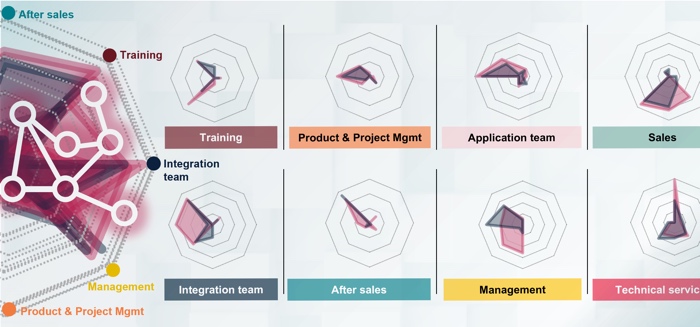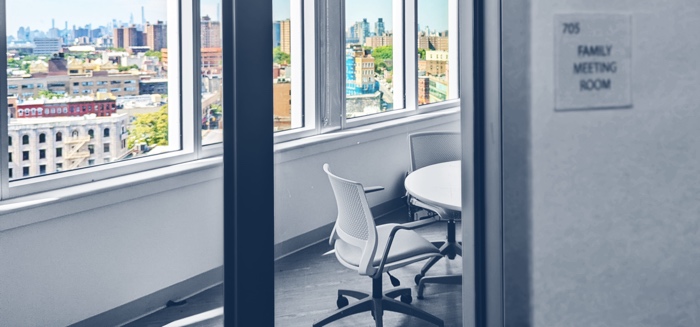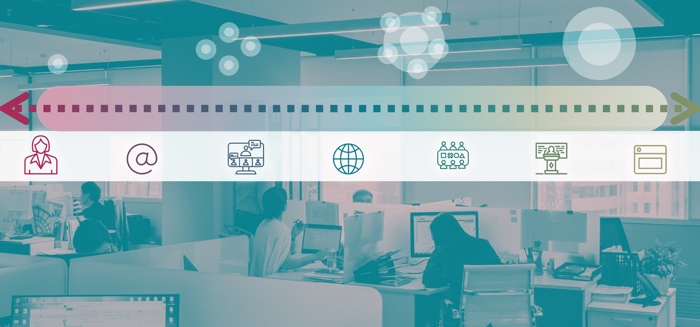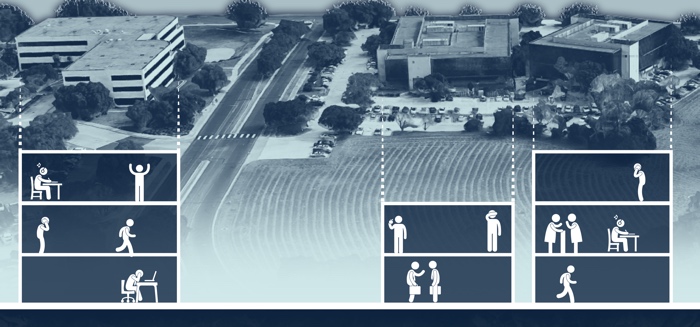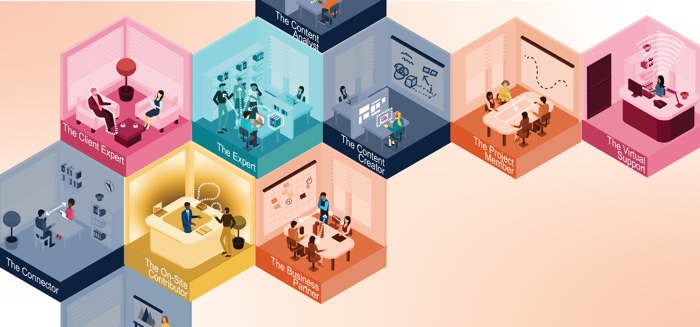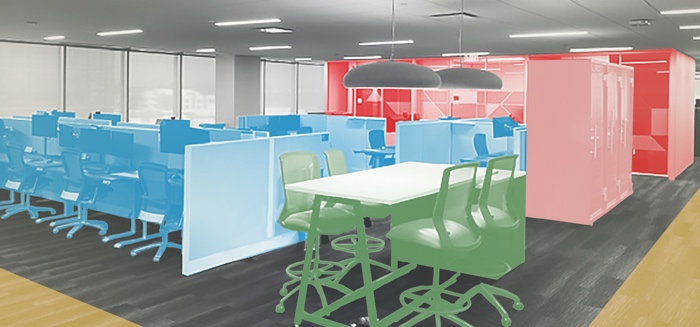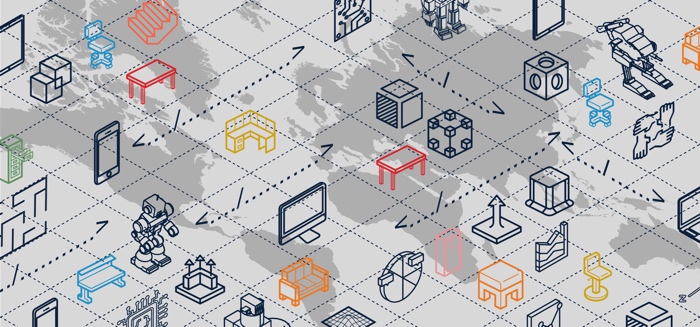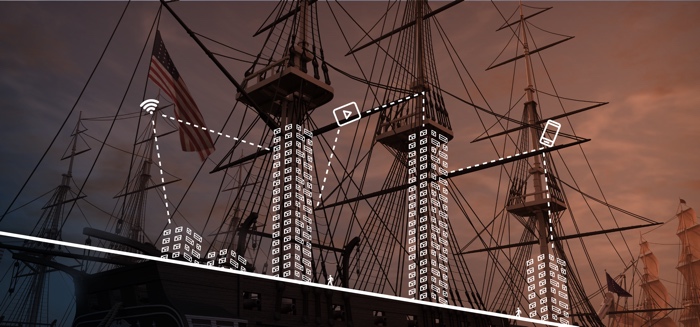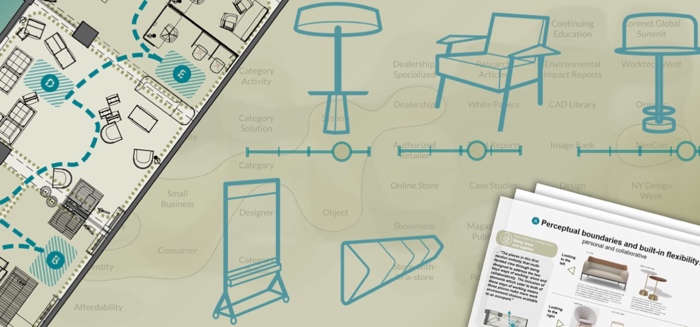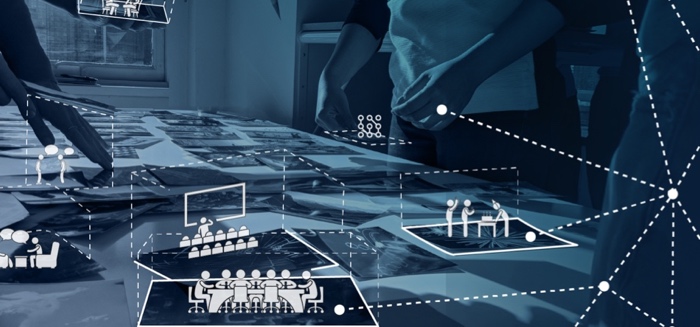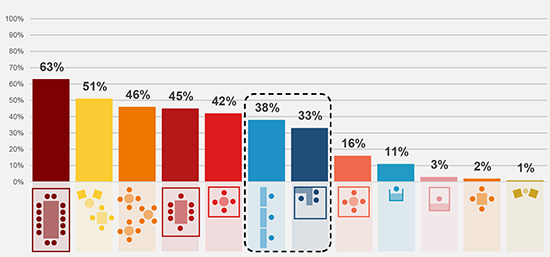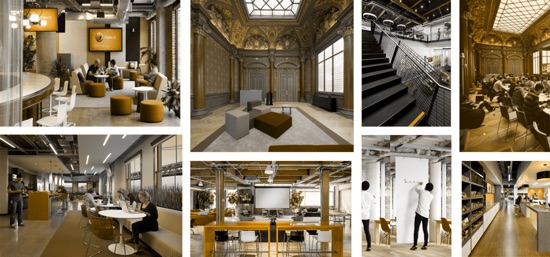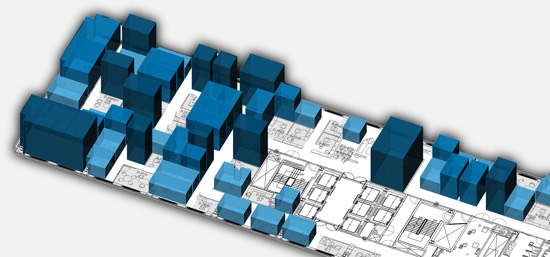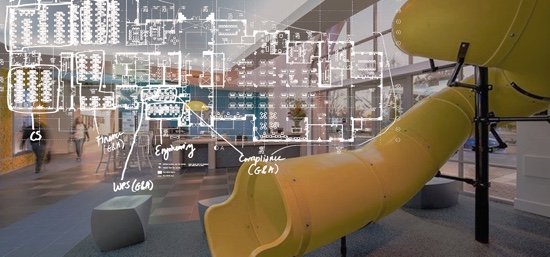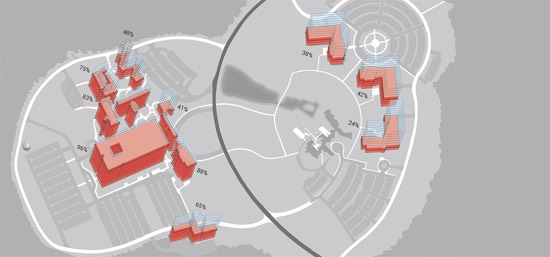PLASTARC partnered with Logitech to optimize their San Jose campus by analyzing the behavioral and spatial drivers of attendance. Through field observations and data on commute patterns and leadership influence, we delivered actionable strategies to right-size the workplace and personalize the "Gravity Day" experience.
PLASTARC is conducting a comprehensive assessment of the state of Delaware's public building portfolio, employing a data-based approach to reconfigure their use and design. Recommendations are made for existing, investing, or maintaining each building/use.
Hawkeye Community College's Grundy Hall Health Science Center represents a bold step forward in health science education. Redesigned by RDG Planning & Design, the facility consolidates previously scattered class labs and simulation spaces into a centralized, multidisciplinary hub, enhancing collaboration and hands-on learning. Equipped with hospital-like patient rooms, advanced simulation spaces, and interactive classrooms, the center immerses students in real-world health science experiences, preparing them for the demands of their future careers. To support Hawkeye’s vision and RDG’s design, PLASTARC conducted a Post-Occupancy Evaluation (POE) to assess how well the space serves its users and educational goals. This evaluation gathered insights through leadership interviews, user surveys, and on-site observations, identifying both successes and opportunities for refinement.
After collecting employee data and testing flexible workspaces, PLASTARC created a forward-looking action plan, which included spatial, technology, sustainability and change management recommendations. This plan allows Connecticut Water to accommodate a growing workforce without growing their physical footprint and to close performance and amenity gaps across various offices and among remote and in-office workers.
PLASTARC leveraged its research and expertise to facilitate the city of McKinney’s transition to a new, consolidated City Hall. An array of custom-fit proposals that integrated individual departments’ needs into the new facility’s floor plans gave way to a highly iterative design process in collaboration with two architecture firms and the client. The new City Hall design marked a perfect alignment of evolving workplace trends and the unique needs of each city department.
In 2018, lululemon embarked on a journey to build a new Vancouver headquarters that would empower its employees to bring their full selves to work. PLASTARC was contracted to provide research and insights to ensure that the future physical workspace would align with lululemon’s culture and mission. After building a compelling case for a workplace model that would let employees choose where and when to work, PLASTARC helped lululemon effectively implement an ABW workplace by leading a comprehensive change management effort.
When Unilever was planning to deploy flexible work strategies in its US Headquarters, PLASTARC was engaged to develop a change management strategy to complement the shift in workplace design. We developed an approach that incorporated important elements of Unilever’s cultural DNA. We deployed a train-the-trainer approach to enable Unilever to support its own change management initiatives going forward.
Faced with the sudden distribution of work in 2020, the GSA had to adjust in order to serve the evolving needs of over 1 million Federal workers. PLASTARC was brought on to conduct both a sweeping analysis of GSA’s own survey data and visioning workshops with leaders from Federal agencies that used the GSA’s services. This research gave way to various recommendations, including a suite of services that GSA could implement to better serve both its own employees and its clientele.
PLASTARC’s programming services help develop modern workspaces that will serve clients years into the future. By applying its science-backed toolkit, PLASTARC avoids the pitfalls of rough estimates and meticulously analyzes factors like space type usage, individual workstyles, and technology solutions. This process adds new dimensionality to the process of data analysis, and gives way to tailored programming recommendations that reflect each client’s industry-specific, long-term needs.
After building a Workplace 2030 outlook that primarily focused on the evolving workplace needs of the GSA’s clients, PLASTARC conducted a full assessment and redesign of the GSA’s employee engagement toolkit, which it uses both for internal and external purposes. This toolkit was implemented in two separate office pilots. The resulting data guided PLASTARC as we made several recommendations related to space, technology, work support, and change management.
TRUMPF, a German industrial machine manufacturing company, partnered with PLASTARC to redesign their Plymouth office. The goal was to enhance collaboration and innovation while addressing perceptual and spatial divisions. Through organizational and spatial mapping, strategic opportunities were identified to support client-facing engagements and internal business flows. The redesign aimed to create a future workplace that balanced tradition and innovation for improved productivity, and facilitated idea exchange among employees.
In 2022, JCCA was preparing to move two separate offices, each of which had housed internal and client-facing operations for almost 15 years, to new facilities. In both processes, PLASTARC used its experience working with other mission-based organizations to facilitate change management and communication. By making recommendations that honored JCCA’s culture and wove its behavioral routines into the new workspace, PLASTARC helped make the new offices feel familiar and intuitive upon move-in.
With a broad overhaul of the CFTC’s offices already fully underway, PLASTARC was brought on in 2021 to simplify and streamline the agency’s change management strategies. After using interviews, workshops, and surveys to conduct a granular analysis of CFTC’s current messaging processes, PLASTARC built guidelines as to how CFTC could establish and maintain clearer channels for communication and feedback.
After Covid-19 necessitated a sweeping conversion to telework, TCEQ contracted PLASTARC to conduct a complete evaluation of its workplace’s physical and technological frameworks. Based on this research, PLASTARC put forward re-design recommendations, marking a major paradigm shift from disjointed physical floorplans and exclusively in-person meetings to hybrid workplaces that prioritize purpose of space over ideas of ownership.
Determined to oversee a transition into the next frontier of work but unequipped with the tools needed to undertake this project on its own, ATB contracted PLASTARC to engage in a three-phase process to create a more efficient workplace designed for a hybrid workforce. Based on its interviews and pre-existing data, PLASTARC designed and rolled out four multi-faceted pilot programs, along with a change management roadmap that facilitated the transformation.
In order to fully implement the lessons imparted by the pandemic, LPL Financial employed PLASTARC to facilitate its holistic transition to a hybrid work model. Through a series of workshops, interviews, and workplace analyses, PLASTARC helped LPL build pilot programs for two offices at opposite sides of the country. Both of these pilots demonstrably resulted in improved communication, well-being, and productivity. PLASTARC provided LPL the vocabulary necessary to replicate and improve upon these outcomes.
Following a spate of acquisitions, NCI (now Cornerstone Building Brands) engaged PLASTARC to guide its efforts to modernize and unify its workplace experience across multiple locations and business units. As a leading manufacturer of a range of metal building products, NCI also aimed to develop a more strategic approach to its space management, striving for a human-centric approach that would help to confront a changing consumer and talent landscape.
The leading provider of platform technology to the gaming industry, Unity wanted to bring their spaces into alignment with their long-term strategy. Working with their architect, PLASTARC provided research and space planning advisory to support their collaboration needs and welcome a wider range of audiences to Unity’s facilities.
The New York City Department of Citywide Administrative Services (DCAS) provides a suite of services to the nation’s largest municipality. In order to provide the city’s employees with greater mobility, collaboration, energy efficiency, density, and employee wellness and retention, they wanted to rethink their office. PLASTARC helped DCAS to set new standards for a government workplace, recasting a floor of the century-old Municipal Building as a coworking space for city agencies.
National Parks of Boston operates some of America’s most beloved historic sites, including the home of the ‘Old Ironsides’, the USS Constitution. PLASTARC leveraged design expertise and previous experience at other public sites, including Grand Teton National Park, to offer pre-design advisory to bring their spaces into better alignment with the work of National Park Service and its partner organizations.
west elm engaged PLASTARC to support their efforts to bring a measure of household comfort to our era’s second home: the office. Leveraging our unique research and knowledge of design, we collaborated with west elm on the design of multiple new award-winning products, and we supported them in telling the story of their innovative new brand.
As Artsy matured from a startup to industry leader, it was quickly outgrowing its existing space. They engaged PLASTARC to provide interdisciplinary people-centric research, developing a workplace strategy and a site selection process that emphasized Artsy’s values and commitment to engage with the surrounding community.
With thousands of employees distributed in offices around the world, Informatica wanted to streamline its workplace and real estate solutions in a way that would allow for individual local identities while retaining a global, recognizable workplace brand. PLASTARC is involved in three main streams of work: conducting post-occupancy evaluations on recently completed workplace projects; advising on the location and programming of new sites; and rebalancing the company’s headquarters to best serve its occupants.
This software company, best known for creating the Firefox web browser, is founded on open source principles, and the Workplace Resources team enlisted PLASTARC to explore how Mozilla's real estate could better align with this business philosophy. We conducted research within and outside of the organization to present possibilities for an open source workplace.
PLASTARC guided this international organization in implementing flexible working, including a pilot environment in their New York headquarters. A staff survey and utilization study provided a snapshot of existing conditions and readiness for flexibility, and provided communications support and design advisory.
BOX realized their own workspace wasn’t fulfilling the company’s mission to connect people and promote collaboration. We formulated a plan for real estate and workspace design to embody the BOX experience internally and to enhance it within the company’s communities.
After adding a new, more modern building to its campus, this educational non-profit wanted to overhaul its workspace and policies to be more up-to-date. PLASTARC was engaged to help reform space allocation to better support the changing nature of ETS employees’ work. With an observational study and a series of interviews and workshops, we showed the organization how to rethink and update how it viewed real estate.




